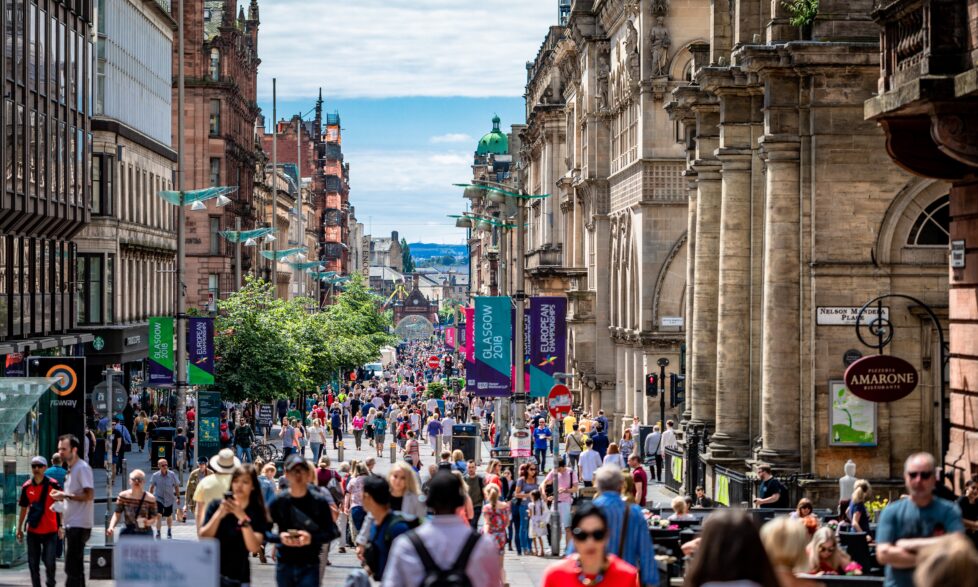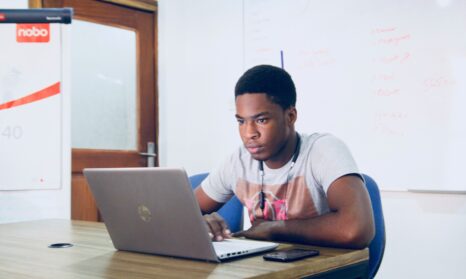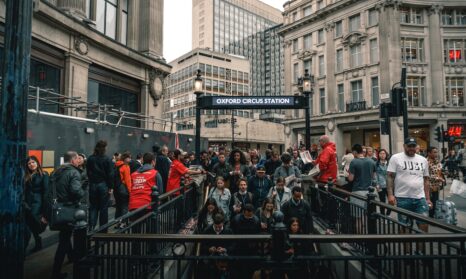Rethinking our high streets after the pandemic
I’ve watched in awe over the last few weeks as organisations have overhauled their working patterns, their objectives and even their business models in a matter of days.
And not only that, millions of us across the globe are changing our behaviour and accepting new rules and norms virtually overnight.
It’s quite astounding to see systems change happen at this scale and pace.
For 25 years, Bioregional has been focused on achieving our vision of One Planet Living® a future where everyone has a happier, healthier and more sustainable way of life. We have long argued that to achieve sufficient progress in tackling the climate and ecological emergency we need to make systemic changes in the way we live, and the way we consume.
Of course, this particular crisis is of a different type – though it is very much linked to, and part of our current patterns of unsustainable production and consumption. Scientists have been clear that the Covid-19 outbreak was a ‘clear warning shot’ from nature.
But it is different from the wider climate and ecological crisis because it affects every one of us on the planet right now – we can’t ignore it. It presents a much more immediate threat to our livelihoods, our lifestyles, and in many cases our very lives. Responding to it requires incredibly rapid action, with governments globally having to force their citizens to make immediate, systemic changes, like it or not.
This level of intervention isn’t possible or desirable for sustainable change. But there are definitely lessons to be considered - particularly around people’s responses to what’s happening…
The pandemic is reminding us what matters
In among the fear, the panic-shopping and our new daily regimes, something else is happening too. We’re discovering what really matters.
In this new reality, the things we yearn for are not the latest outfit that we can’t afford, or the sleekest car, but emotional connection with our friends and family, peace of mind, healthy food and the opportunity to be in nature.
We’re less worried about whether our phone or tablet is the latest model, and more about that its ability to enable us to stay in touch with loved ones and keep us productive at work. If it breaks, we want to know that we can easily fix it, as we might not be able to afford to replace it.
The things we now fantasise about are going for a run, or a swim, a picnic with friends in the park, or just having a hug – not an afternoon in Westfield shopping centre.
So not only are we rapidly forming new habits and behaviours within the context of rapid system change – we are also re-learning the key ingredients for a happy, healthy, connected life. Both of which are prerequisites for tackling the climate and ecological emergency.
Could it last?
Can we use this time to rethink the high street?
At Bioregional we’ve already done a lot of thinking on what the future of retail could be, and how our shopping centres and high streets could be redesigned so that they meet the needs of the planet, as well as people and communities.
Already struggling to stay relevant in the context of the big shift to online shopping – not to mention in the UK, dampened consumer confidence after three years of Brexit-related uncertainty – high streets now face a trilemma of how to:
- manage the shift to digital
- tackle the climate and ecological crisis
- survive the new Covid 19 crisis
For those retailers that survive the current crisis (and clearly not all will), their medium-term survival – and the future of humanity – might just depend on remembering what people are seeing as precious right now. This could act as the catalyst for retailers to take the lead in moving us away from the endless, thoughtless, throwaway consumption that prevailed until just a few weeks ago.
Imagine a high street that enables friends to meet up, the older and more vulnerable people in our society to feel part of a supportive community, where families can come to spend time connecting with each other and kids can play safely. And where all of us can buy what we need in a far more conscious and mindful way than we have done for the last 60+ years.
Imagine high streets that don’t destroy nature, but enable it to thrive, and contribute to achieving truly sustainable consumption by enabling us to easily borrow or repair the goods we need. High streets that get us on track to avert the climate and ecological catastrophe and achieve the UN Sustainable Development Goals.
Already there are small signs of this kind of thinking. For example I saw this morning that shops in Dudley have created a ‘virtual high street ‘so that we can continue to support experiments which invite curiosity, nurture creativity and unlock collective resourcefulness.’ That’s just the sort of thinking that’s needed now.
No-one should ever want to learn how to create systemic change this way. But we can’t change the situation we are in, so let’s see what we can we learn from it.
In part one of this blog series, Sian Cooke explored 5 things that sustainability teams can focus on in lockdown.
Learn more about our sustainability consultancy services.







